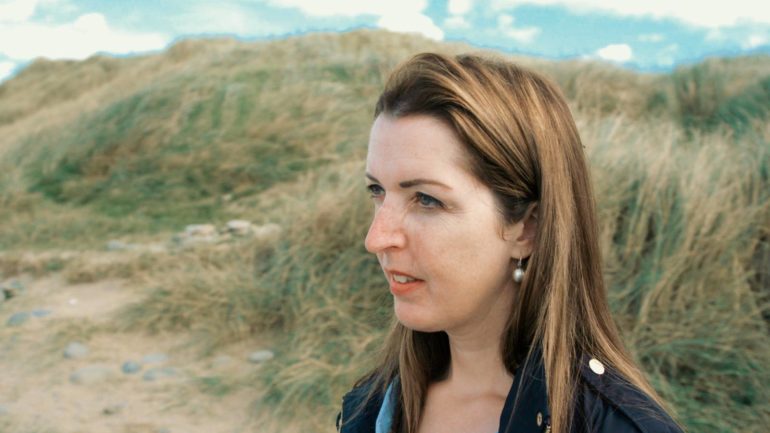‘Lessons have been learned’
A hollow echo and a familiar refrain for anyone involved in any one of Ireland’s myriad scandals over the years. The words aren’t explicitly uttered in Vicky, Sasha King’s new documentary about the tireless cervical check campaigner Vicky Phelan, but if you listen closely enough those empty sentiments and false promises are threaded throughout, a repulsive knotweed holding our scandals together. Women have always suffered through them and will likely do so again. Tragically it’s what we do well in Ireland. I would usually give a backstory to the film here, but as a population, we are conditioned to know what has happened. We know who is at fault, and we know who will stand up and eventually apologise after yet ANOTHER tribunal of inquiry. It is depressing, cyclical and unacceptable.
As a documentary, the format and style will be familiar. This is the kind of film that will go over extremely well on television. And that is not to say that it doesn’t work well on the cinema screen. It does, and it’s because King carefully links the personal and political here. But the emotive storytelling and anger will truly land when the watch is an at-home communal one. We see lives shortened, emotions forever on the verge of eruption and generic mea culpas in the Dáil given out like poisoned little treats. Luckily for King at the centre is Vicky Phelan, sharp-witted, energetic and stubborn, all the qualities you need in abundance when you end up taking on the State, and the type of dynamic person you can hang a film on.
Her sheer force of personality gets it over a couple of dry stretches. It is also helped by some of the phone footage of her in quiet, presumably mid-Covid hospitals. It has a kind of stark, horror film quality that is difficult to shake. The final stretch has a sequence on the beach that enjoys a cumulative power, but there is a profound sadness in its DNA. We all run out of road eventually. Phelan (and her wonderful kids) seem to accept this and are thankful for the extra time she received. The irony that Phelan took that time forcefully by refusing an immediate end and researched her own treatment, and that the behemoth that is our health system did not provide for it, is as damning as anything else in here. The anger that slips out every so often makes clear that this kind of end should not be for the want of saving a small amount of money by outsourcing. The US labs, anonymous here, take plenty of responsibility, as they should but it the State is ultimately at fault, shortening lives and dragging the women through the court system to further reduce life expectancy. Shameful and rage-inducing footage is shown.
Here, as King assembles it, the documentary is a legacy, is a testimony, maybe even Phelan’s final word on the matter. We routinely fail our women because a patriarchal system could not and cannot find the flexibility to treat women on any sort of level playing field. If there is to be any silver lining with Vicky (and the 20 or so women who have passed in the lifespan of the film) it must surely be to make sure this can’t happen again. Vicky Phelan is a name that has become synonymous with our systemic failure of women, joining Savita Halappanavar, the X case and Catherine Corless amongst many others. Not listened to, not treated like equal citizens, and not believed. We cannot stand for it to happen again.

